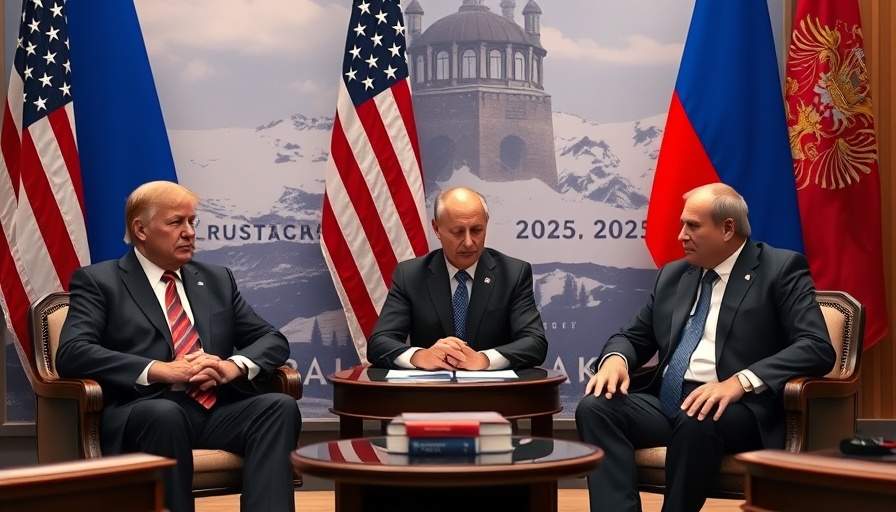
Why Putin's Aggression in Ukraine Should Not Be Rewarded
The heightened tensions resulting from Russia's aggression against Ukraine have stirred global concern and prompted calls for decisive action. The stakes are particularly high for international leadership, as any perceived reward for Putin could encourage further acts of aggression, undermining international norms and destabilizing global peace.
The Stakes: A Global Perspective
Since the onset of the conflict, international reactions have varied from sanctions to diplomatic dialogues. Notably, the United States and its European allies have united to impose economic penalties on Russia, aimed at halting its military ambitions. Rewarding Putin not only risks emboldening him but also sends a troubling message about the effectiveness of collective response to international aggression.
Learning from History: When Compromise Leads to Conflict
History offers a wealth of lessons about the consequences of appeasing aggressors. Instances such as the Munich Agreement in 1938 have been cited as cautionary tales; bending to demands can sometimes provoke rather than prevent conflict. Ensuring a united front against Putin's actions is essential for maintaining the integrity of international law and order.
What Could a 'Reward' Look Like?
The idea of rewarding Putin could manifest in various forms, from lifting sanctions to recognizing territorial claims stemming from conflict. Such actions not only contradict the principles of sovereignty but may also lead to a more aggressive stance from Russia toward its neighbors, thereby destabilizing the entire region.
Counterarguments: The Call for Diplomacy and Engagement
While many advocate for a tough stance on Russia, there are those who argue for diplomatic engagement. They posit that dialogue could help de-escalate tensions. However, the challenge lies in striking a balance between engagement and reinforcement of aggressive tactics. Pragmatic diplomacy should not undercut the global commitment to principles of peace and sovereignty.
Looking Forward: The Importance of a Unified International Response
As the situation evolves, the international community must continue to adapt to changing dynamics. Unity among Western nations in response to Russia's actions will be integral in sending a clear message that aggression will not be tolerated. Moving forward, proactive measures, including additional sanctions and support for Ukraine, will be pivotal in the response strategy.
Final Thoughts on International Response
The future of global stability hinges on how the international community addresses conflicts like the one in Ukraine. Upholding strong stances against aggression not only reinforces current alliances but also sets a precedent for handling future crises. It's imperative that voices advocating for accountability prevail against those suggesting concessions in the name of diplomacy.
In conclusion, to ensure peace and deter future aggressors, world leaders must be resolute in their position against rewarding Putin for his actions in Ukraine. The integrity of international order is at stake, and now is the time for a united response.
 Add Row
Add Row  Add
Add 



Write A Comment